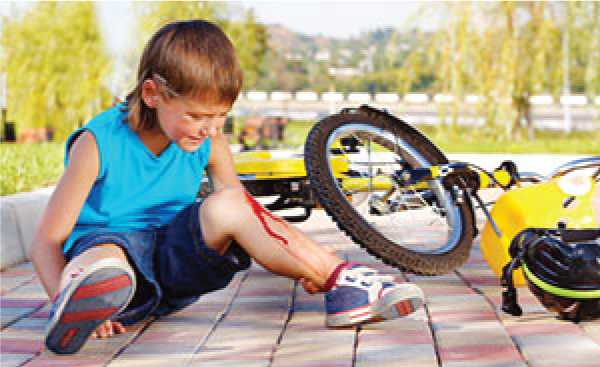KEEP ACCIDENTS AND ILLNESSES at bay during the holidays

Schools are closed and this season brings excitement as vacation related activities take centre stage. Unfortunately, statistics reveal this is the time when injuries, accidents and cases of sickness in both children and adults thrive. Below are some of the common illnesses and injuries to expect when it comes to children during this holiday season, and how to deal with them.
Injuries
Burns, bumps and fractures: So you finally have a chance to bring out the grill for a mouth-watering barbecue session with friends and family. Be on the lookout for cases of burns associated with the same, especially if you have several children running around the compound. Keep children away from scalding fluids including water, oils and soups, which can also cause burns. Christmas tree lights draw children’s attention like moth to light; ensure that the wiring is properly done and insulated to eliminate any cases of electrocution.
Avoid fire accidents at all cost. Fire burns range from first-degree to third- degree. First-degree burns are surface burns and can be treated easily at home as all they require, at worst, are painkillers and keeping the skin clean and dry. Second-degree burns may require medical attention especially when characterised by blisters and broken skin. Third-degree burns are more invasive and most cases may prove to be fatal.
Fractures and broken bones tend to be common as well during the festive season as the children are more pre occupied with play than books. Though not all fractures might be serious only a doctor can determine, that. In the event of a fall leading to misalignment or swelling or bone(s) jutting, visit your doctor. Most bumps are not dangerous but in case your child starts exhibiting slurred speech, vomiting when fed, blurred vision, difficulty in balancing and walking, then check into a hospital, as these are indicators of a far more serious injury.
Sickness
As far as illnesses go, tummy aches take the lion’s share thanks to the inglorious amount of cooking and eating that goes on during this season hence increasing chances of not only overeating, but
also food poisoning. Tummy aches are characterised by:
Pain: The pain may range from acute (in the event of food poisoning) to discomfort caused by bloating, indigestion and constipation. Often, the culprit is overeating and poor diet choices that do not include fibre and hydration, which help in digestion and bowel movement.
Diarrhoea and vomiting: Diarrhoea and vomiting are also common and are usually caused by contaminated food, overeating or overindulgence in sugar rich foods. Diarrhoea in children usually passes within a few days but if it persists, visit your paedetrician who will also recommend an oral rehydration solution mixture of salt, sugar and minerals depending on the severity, age and weight of the child, in addition to recommending intake of plenty of water in the event tests do not indicate an underlying condition such as cholera or typhoid. Fruit juices and fizzy drinks make diarrhoea worse in children so avoid them. In case of vomiting, let the child take small frequent sips of water until they are comfortable enough to resume their normal diet.
Precautions to take when handling food
Preventing food-borne illnesses is a lot simple than one would think. Limiting portions and saying no to seconds and thirds especially where sugar rich foods (read here desserts) and children are concerned is a good place to start. Moreover, take extra care with the preparation and storage of your food. Ensure necessary steps are followed when it comes to food preparation. Wash whatever needs to be washed, peel, cook and refrigerate food appropriately and at the right temperatures (cold versus frozen or room temperature) for different types of food to avoid not only cross contamination, but wastage as well due to food going off.
Ensure that areas and surfaces where food is prepared such as chopping boards are pristine. Make fruits, vegetables and water as available as possible as they will help with bowel movement and hygiene. As a general rule, try to keep the children active as this will help with bowel movement and good utilisation of all the calories they consume. In case you are travelling, avoid the temptation to indulge in roadside foods, as there is no telling how and when they were prepared. Instead, pack your own food from home, but if you have to, insist on packaged, dry foods or a banana.
Published in December 2015




